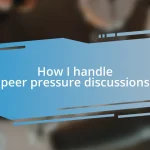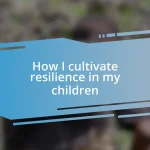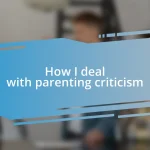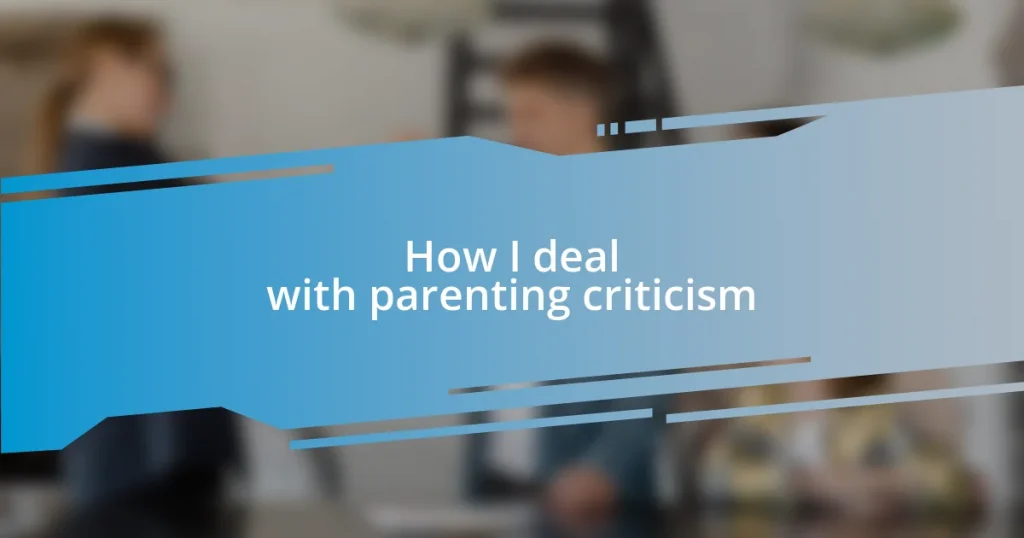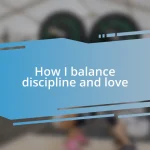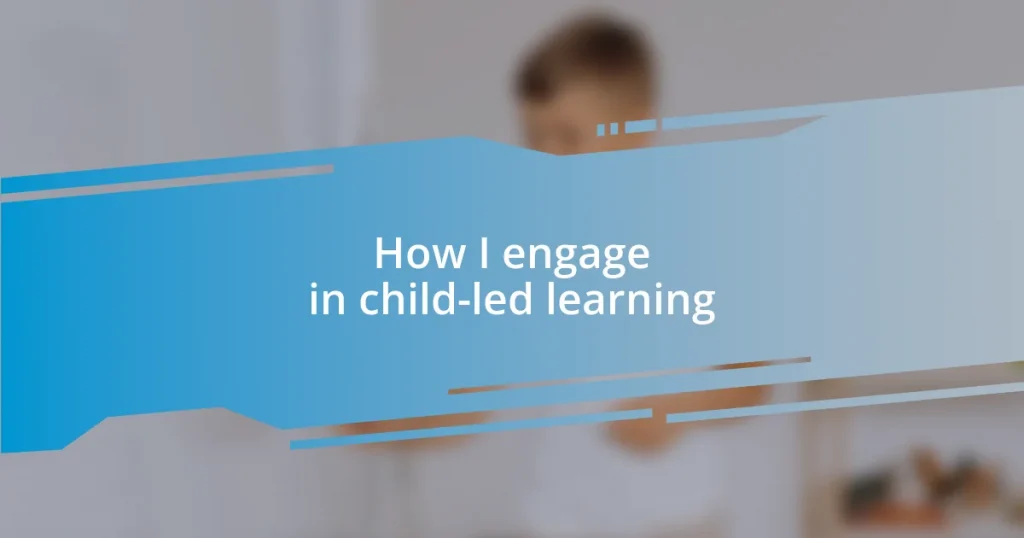Key takeaways:
- Criticism in parenting often reflects personal experiences and beliefs; recognizing its roots can help shift from defensiveness to growth.
- Effective strategies for managing emotional responses to criticism include pausing before reacting, validating feelings, and reframing thoughts.
- Engaging in open communication, using “I” statements, and expressing gratitude can foster constructive dialogues and a sense of community among parents.
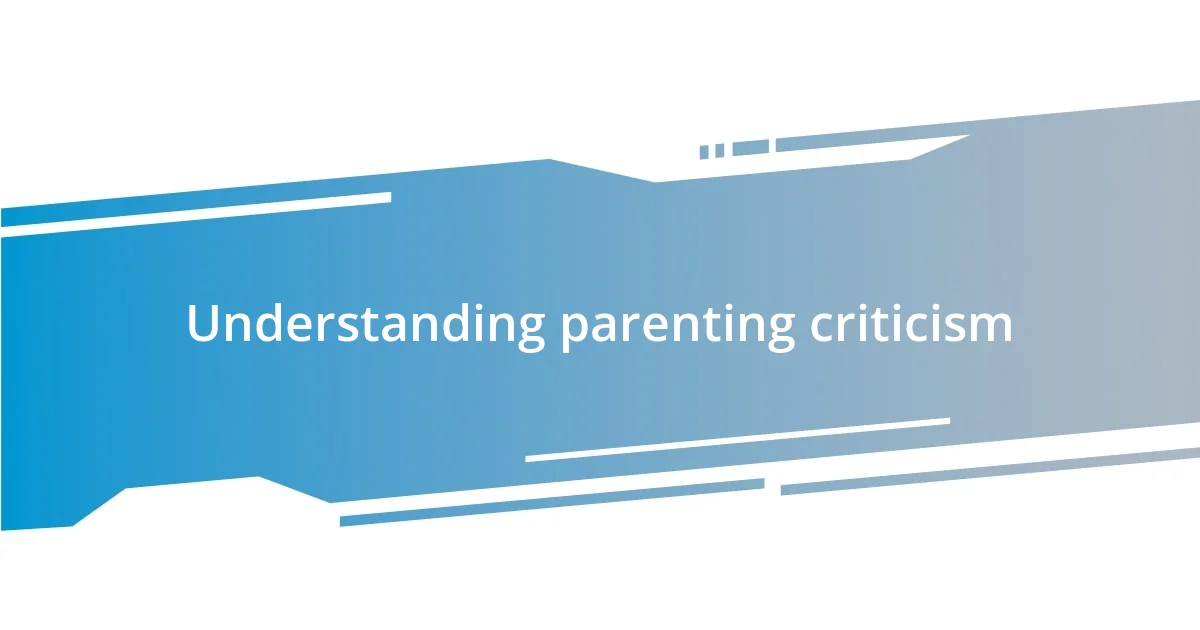
Understanding parenting criticism
Parenting criticism often feels like a heavy weight on our shoulders. I remember a time when a well-meaning family member pointed out how my toddler’s tantrum could be better handled. At that moment, I felt a mix of embarrassment and frustration—didn’t they understand that every child is different? This highlights how criticism can feel less like constructive feedback and more like judgment.
It’s essential to realize that criticism usually stems from personal experiences or beliefs. For instance, I encountered a neighbor who was adamant about strict discipline because that’s how she was raised. While I respected her approach, it made me question if my more relaxed methods were “wrong.” It’s a bitter pill, isn’t it? A reminder that each parenting style is shaped by unique circumstances, and what works for one may not necessarily suit another.
In processing criticism, I often find myself asking, “What can I learn from this?” This question shifts my perspective from defensiveness to growth. Discovering spaces for improvement has a way of transforming criticism into an opportunity. Remember, although criticism can sting at first, understanding its roots can help us navigate our own parenting paths with greater confidence.
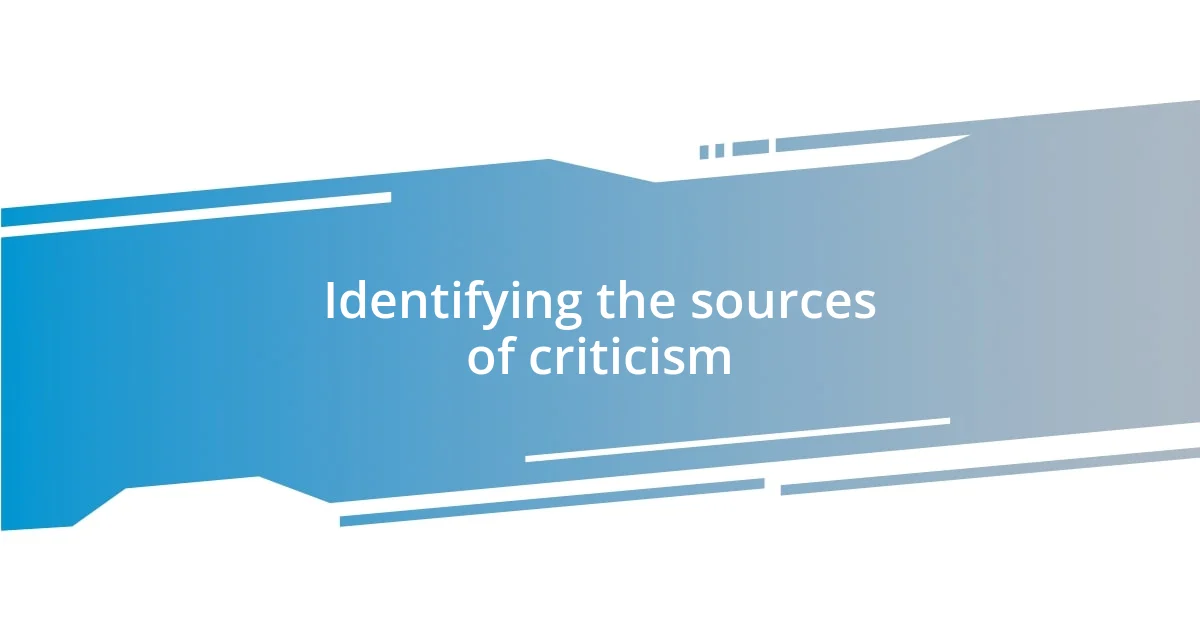
Identifying the sources of criticism
Identifying the sources of criticism involves taking a moment to reflect on where it’s coming from. I often notice that criticism tends to echo from those closest to us—friends, family, and sometimes even online communities. I recall receiving unsolicited feedback from my close friend about my choice of schooling for my child. Although she meant well, her perspective was influenced by her own experiences, which led her to suggest I was missing out on something important.
It’s also worth considering the motivations behind certain critiques. For example, I once had a coworker who frequently commented on my relaxed bedtime routine for my kids. Upon listening to her concerns, it became clear that her disciplined schedule stemmed from the chaos she experienced growing up. Realizing that her criticism was born from concern, rather than judgment, helped me appreciate her input while maintaining my own approach.
Criticism can arise from various angles—cultural beliefs, personal experiences, or even societal norms. When I received feedback from an online parenting group about my decisions, I realized it often reflected broader parenting trends rather than my unique situation. This understanding empowered me to filter criticism through my values and establish my parenting philosophy regardless of the noise around me.
| Source of Criticism | Potential Motivation |
|---|---|
| Family and Friends | Personal experiences, concern for well-being |
| Coworkers | Influence of upbringing, shared environments |
| Online Communities | Trends, peer influence, societal pressures |
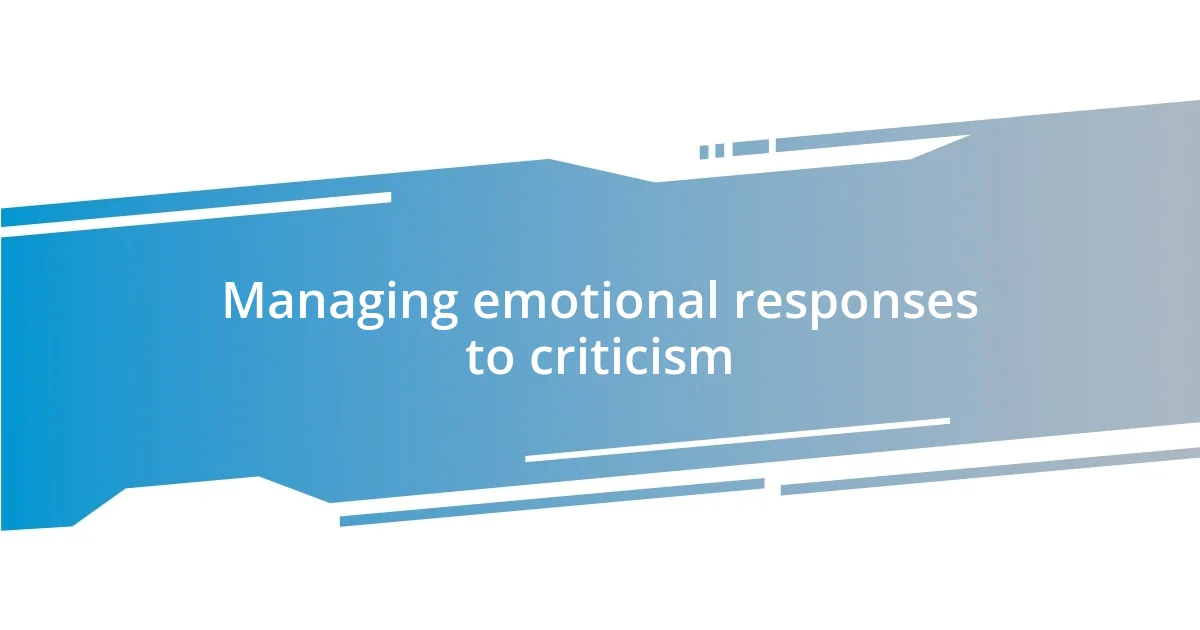
Managing emotional responses to criticism
Managing emotional responses to criticism can be undeniably challenging. I still remember a moment when a friend casually mentioned that I should consider stricter boundaries for my child. Instantly, I felt that familiar pang of insecurity. It’s surprising how quickly our hearts can react, isn’t it? Instead of brushing it off, I turned to journaling my emotions, which helped me process what I felt and clarify my response.
To help manage these emotional reactions effectively, I’ve found the following strategies to be particularly beneficial:
- Pause Before Reacting: Take a deep breath and give yourself a moment to digest what was said.
- Validate Your Feelings: Acknowledge that it is okay to feel hurt or defensive. These feelings are part of being a caring parent.
- Seek Constructive Insights: Ask yourself, “Is there a nugget of truth in this feedback?” This can help transform hurt into growth.
- Talk it Out: Share your feelings with a trusted friend or partner. Their perspective can help you see things more clearly.
- Reframe Your Thoughts: Instead of viewing criticism as a personal attack, consider it an opportunity for deeper reflection.
Each of these steps has opened new doors for me. They’ve not only eased my emotional responses but also helped me grow as a parent. I hope they do the same for you!
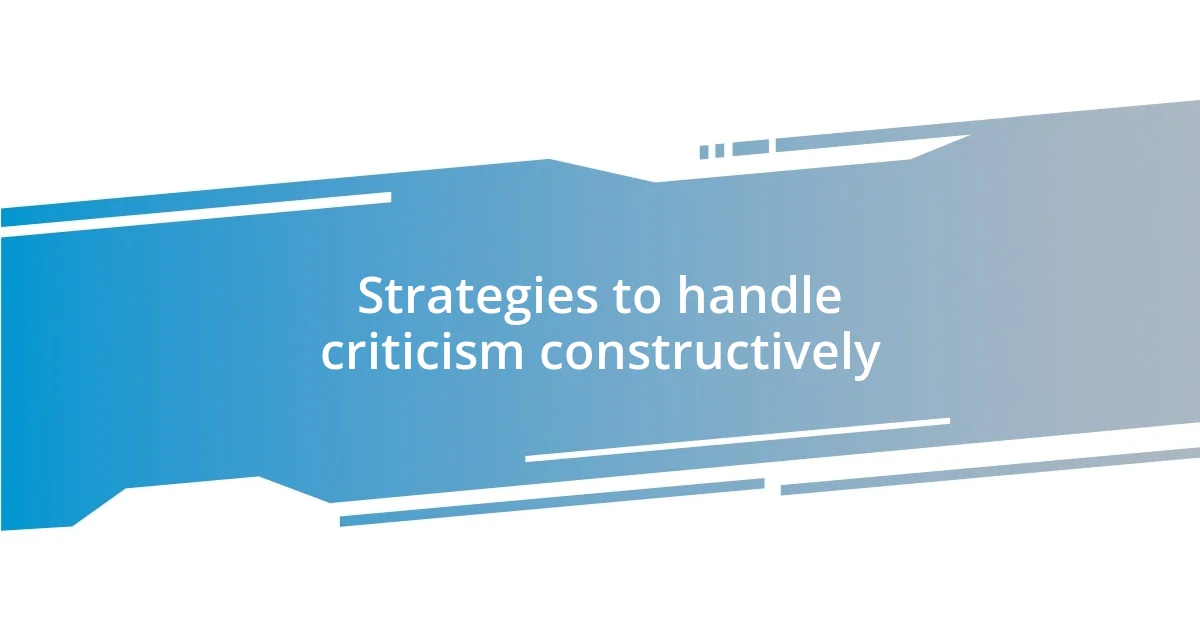
Strategies to handle criticism constructively
One effective strategy I employ to handle criticism constructively is to reframe my perspective. When I hear negative feedback, I often ask myself, “What can I learn from this?” This simple shift allows me to transform my initial frustration into a more positive, growth-oriented mindset. For instance, after receiving comments about my lenient approach to discipline, I took a moment to reflect on the values I cherish. Instead of feeling defensive, I began to see the conversation as an opportunity to refine my parenting techniques.
Another tactic that I find helpful is seeking clarification. There was a time when a family member criticized my decision to limit screen time for my kids. Rather than dismiss the comment or react impulsively, I asked her to elaborate on her concerns. This not only diffused my own emotional response but also birthed a productive dialogue. It turns out, she had misconceptions about my goals, which allowed us to align our perspectives and even enrich our relationship.
Lastly, I believe in the power of connecting with other parents who face similar challenges. Engaging in open discussions, whether through casual coffee dates or online forums, always proves to be a treasure trove of support. I vividly recall a conversation I had with a fellow mom who expressed feeling overwhelmed by judgment on her choices. Sharing experiences not only validated our feelings but also reminded me that we’re all navigating this complex journey together. Isn’t it comforting to know we’re not alone?

Communicating effectively with critics
When I’m faced with criticism, I’ve learned to prioritize active listening. I recall a moment when a colleague critiqued my parenting approach during a casual dinner. Instead of immediately countering her comments, I leaned in, asked questions, and genuinely sought to understand her perspective. This not only helped clarify her intentions but also opened a door for meaningful conversation. Isn’t it fascinating how often a simple shift in listening can lead to richer dialogues and reduce defensiveness?
I’ve also found that using “I” statements can be a game-changer. For instance, when responding to a family member’s critique about my parenting style, I said, “I feel overwhelmed when I hear that, and it’s hard for me to navigate that feedback.” This approach personalizes the conversation and fosters empathy, shifting the focus from blame to understanding. It’s a gentle reminder that we’re all in this together, maneuvering through our own unique challenges.
Another strategy I adopt is expressing gratitude for the feedback. I distinctly remember a friend sharing her thoughts on my child’s behavior during a playdate. Instead of bristling, I simply said, “Thanks for caring enough to share your thoughts. I’ll consider them.” This willingness to embrace feedback – even if it stings – has allowed me to create a more constructive dialogue and foster a sense of community among fellow parents. How powerful is that, to turn a potential disagreement into a learning experience?




